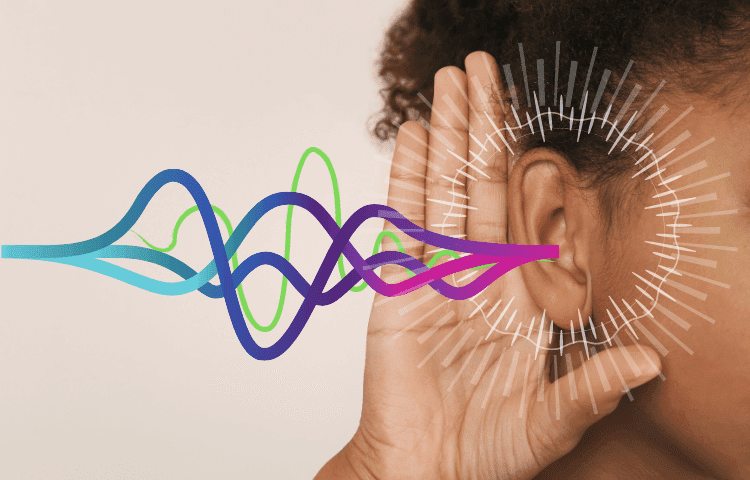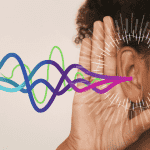Suppose you or your loved ones are currently experiencing or were diagnosed with hearing loss. In that case, there is some information you will need to know in order to understand what hearing loss is and what are the different types and severity of hearing loss.
When it comes to hearing loss, you or your loved ones are not alone. It is essential to be knowledgeable of yours or your loved one’s hearing sensitivity, especially when looking for treatment such as hearing amplification. Read on to learn more about hearing loss.
What is Hearing Loss
Hearing loss is one’s inability to hear sounds in a normal fashion due to the physical or neurological abnormalities of the ear or the auditory system. There are different types of hearing loss that can occur, causing the individual not to hear well.
Types of Hearing Loss
There are different types of hearing loss: conductive hearing loss, sensorineural hearing loss, and mixed hearing loss.
Conductive Hearing Loss
Conductive hearing loss occurs when the physical components of the ear are not working properly. For instance, the person cannot hear well if their ear canals are blocked with ear wax. Blockage of ear wax prevents sounds from traveling to the eardrum, the ear ossicles (ear bones), and then to the nerve of hearing (called the cochlea) correctly.
Conductive hearing loss can also occur if the person has an ear infection or fluid in the middle ear space.
Other known conductive hearing loss is due to the abnormality of the ossicles (ear bones).
Conductive hearing loss is typically a temporary type of hearing loss. Ear wax can be cleaned out and removed from the ear canals in order to hear better. Ear infections, when treated properly, can be cleared to improve hearing sensitivity.
Sometimes conductive hearing loss is permanent, especially when a person has chronic ear infections or a history of physical abnormalities of the ear.
Treatments for Conductive Hearing Loss
Conductive hearing loss is treated in several ways. If there’s blockage of wax in the ear canal, the ears can be cleaned by an ENT physician or primary care physician.
For ear infections such as fluid in the middle ear space, treatment is provided by an ENT or primary care physician. A complete evaluation is required before receiving treatment.
For conductive hearing loss that is permanent, an amplified hearing device may help improve hearing in some cases. It is recommended to have a complete evaluation with an ENT physician and audiologist to determine the best treatment for conductive hearing loss.
Sensorineural hearing loss
Sensorineural hearing loss occurs when the organ of hearing called the cochlea or the auditory nerves are not functioning properly.
Sensorineural hearing loss can occur from birth (congenital) or aging. It can also occur due to exposure to loud sounds or even from medications that could be toxic to the cochlea.
Treatments for Sensorineural hearing loss
Sensorineural hearing loss is usually treated with an amplified hearing device such as a hearing aid. If the hearing sensitivity is severe to profound, the individual may be a candidate for cochlear implants. It is recommended to speak with your ENT physician or audiologist about the best treatment for sensorineural hearing loss.
Mixed hearing loss
Mixed hearing loss is a combination of conductive hearing loss and sensorineural hearing loss. This can happen if an individual has some nerve-related hearing loss and has impacted wax in the ear canals or an ear infection, causing the hearing to worsen.
Treatment for mixed hearing loss
Mixed hearing loss may need to be treated in several ways. Sometimes an amplified hearing device is recommended. Speak to your ENT physician or audiologist for further evaluation regarding mixed hearing loss.
The severity of Hearing Loss
The degree of hearing loss can determine how well a person can hear. The degree of hearing loss can range from slight-mild, mild, moderate, moderately-severe, severe, and profound (unaidable).
The degree of hearing loss can occur in any hearing type (conductive, sensorineural, or mixed). The degree of hearing loss can be determined by a complete audiological evaluation or hearing test performed by an audiologist or hearing health care provider.
Conclusion
Overall, hearing loss can occur in people of all ages. It can occur from birth, from aging, from prolonged exposure to loud sounds, or even from medications that could be toxic to the ears.
Hearing loss can also occur when there is excessive wax or when there are chronic ear infections. A combination of conductive and sensorineural hearing loss could create a mixed hearing loss.
The degree or severity of hearing loss can occur in any of those types of hearing loss ranging from slight mild to profound.
It is essential to contact your ENT Physician or audiologist for more information about hearing loss and hearing loss treatments.




